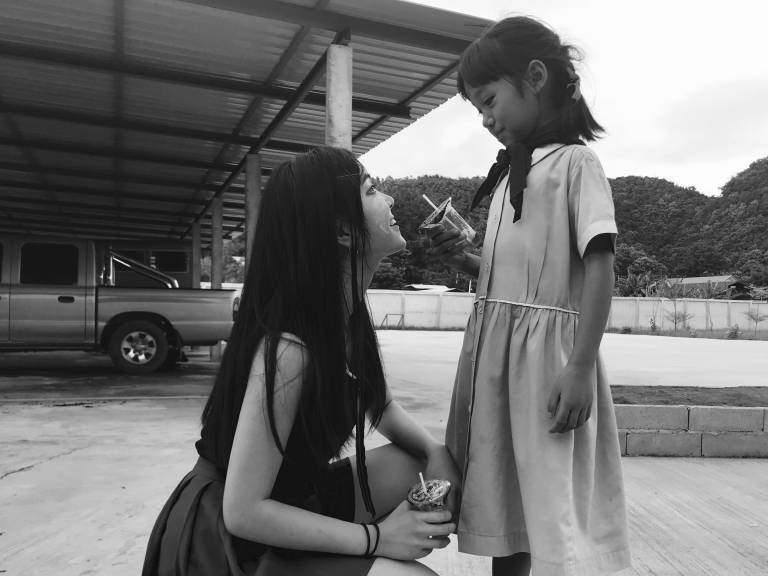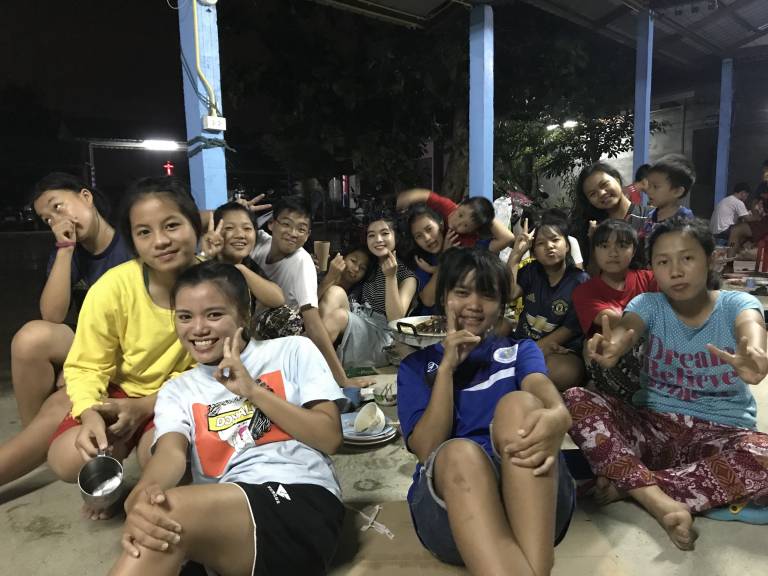Nurturing Global Leaders Programme, Thailand
18 March 2019
Over the summer of 2018, UCL sent students onto the Nurturing Global Leaders Programme for the first time. Bella was one of the IOE students who spent time teaching English in Thailand through the programme.

Bella Xu, Education Studies
I had a great nine-week experience on the Nurturing Global Leaders (NGL) Programme where I volunteered as a teacher to give English classes to students who come from Christian minority backgrounds in rural Thailand.

Before we were sent to our individual schools for teaching, we were given a week of induction where local volunteers debriefed us on the local cultures and talked us through a range of teaching techniques. It was also beneficial for us to be given the opportunity to conduct a mock teaching session to demonstrate and to reflect on our teaching in real school settings — I identified my strengths and weaknesses to tackle and became less self-conscious while delivering classes.
The NGL experience was intense; I had five to seven hours of compulsory teaching every weekday. After I recorded my daily routine for a week, I realised how much extra work was required in addition to delivering lessons. Commitments included updating student records, preparing for lessons and marking students’ work. The full-time commitment required for the NGL experience allowed me to explore the term ‘teacher’ and the roles of ‘teacher’ further.
There were ups and downs that I shared with the students and the volunteers from HKU. Apart from being a volunteer teacher, I had fun experiencing local cultures! Through attending Sunday church worship with the children and participating in their weekend activities such as cooking Thai hotpot, going to cinema and painting school walls, I established a good rapport with them as well as the other volunteers from HKU. To create personal memories with the students, we planned a Student Awards Evening for all children in the school in order to embrace everyone’s unique virtue.

Despite all of the good memories, I did have a hard time during fourth week of the programme. At this point, the children had become emotionally attached to me to the extent that they would not leave me by myself in the teachers office while I was creating lesson plans and marking their homework. I suffered from working long hours during the day and was not able to provide the students will my full energy. As I was physically and mentally exhausted by the end of each day, I considered quitting half way through the programme. However, after I put myself in other teacher's shoes, I stopped thinking negatively and I decided to talk to the headmaster about the issue and got consent from him to explain to children about my feelings. Through that week in particular, I started to think about how challenging teaching is and how to manage a heavy workload whilst being responsible for students academically and ensuring their wellbeing needs are met.
Thanks to the NGL programme, I thought seriously about my career aspirations. The programme broadened my vision on education across different parts of the world and across society. I also developed a stronger desire to work on teaching and educational policy in future - and here is my reason:
The school I worked in was initially funded as an orphanage. In order to offer students free education, the funder travels around the world trying to secure long-term donations and partnerships with churches in different parts of the world. The government didn’t give grants to schools in middle of the mountains and the school purely relied on donations. It was built with poor materials - just enough to prevent rain leaks in during monsoon season. Due to the lack of budget, teachers at the school were all volunteers who are extremely passionate about taking care and educating children but have not completed education beyond primary level. The more I got to know about the local volunteers, the funder, the students and the local community, the more enthusiastic about educating and being educated I found within them. I truly hope that the government would value education and implement ‘education for everyone’ so education needs in rural areas could be met.
I am thankful for being able to participate in the NGL Programme and I treasure the transferable skills I developed. I became more confident in presenting information in front of a large group, being able to identify strengths and weaknesses during activities and improved my relationship management skills.
In summary, it was through the NGL programme that I understood the role of the ‘teacher’ in more depth and developed greater sympathy and understanding of children who come from deprived social economic backgrounds and have not yet gain access to quality education. My experiences inspired me to work on educational policies in the future and I truly hope that governments in all nations can redistribute more grants in education sectors to improve infrastructures and to increase benefits to teachers to help improve the education sector. For those of you who are thinking of going into teaching, training as social workers or studying governmental policy, I recommend that you consider the programme and I am telling you that you will not regret it!!
 Close
Close

